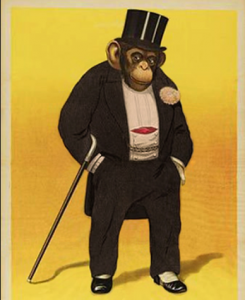Throughout “Bernice Bobs Her Hair,” hair is undoubtedly is an often-visited subject. While Bernice’s cousin, Marjorie, has everything of which to be envied, Bernice is simply boring. Every single facet of Bernice is uninteresting until Marjorie takes her on as an apprentice, a project in which she fashions Bernice to have all of the qualities that make Marjorie such a hit in the social world – all of them except, of course, Marjorie’s perfect, golden hair. While Bernice is gaining more and more popularity and becoming more in line with Marjorie, Bernice declares that she will bob her hair. This statement was almost unheard of, and an extremely strong declaration. A woman’s hair, ever since the Victorian times, has been an object of obsession. For Bernice to part with her hair, to cut it so short when traditionally, women’s hair has been long and flowing, was to some, almost offensive in how radical a change that would be. Hair has been for many centuries a possession for women to show off and something in which to take pride and of which to be envied. Feminism was certainly growing and expanding during the 1920s, and when Bernice announces her intention to bob her hair, she gains more popularity rather than persecution for her then almost outlandish plan. Marjorie calls Bernice out for being all talk and no walk, pressuring Bernice to go through with the bob. As expected, the hair cut is awful, and Bernice loses all of her gained popularity, but before she leaves town, she takes something of her cousin’s to exact revenge – Bernice cuts off Marjorie’s braids while she sleeps. In this tale, F. Scott Fitzgerald explores the role of women’s hair and how, even though seemingly trivial, can define how people perceive others.

